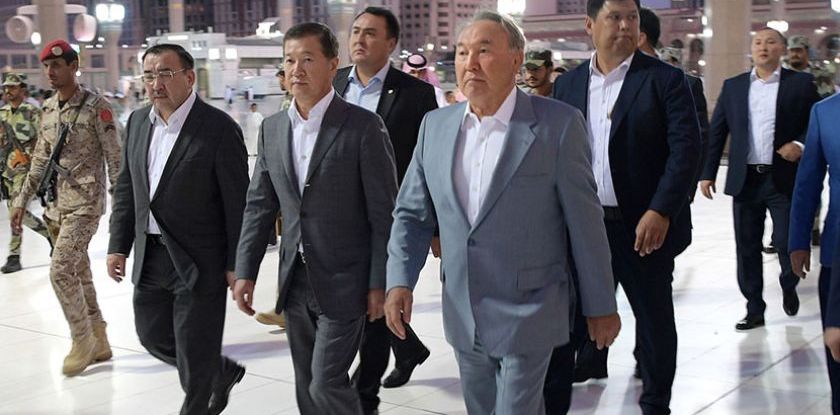The Kazakh authorities of today can be compared with airplane pilots flying high above the ground and looking at the country through a veil of clouds. On the one hand, they can see everything. On the other hand, however, they can only guess what is really happening down there. Therefore, they are afraid. And the higher they fly, the more scared they are.
On March 1, 2017, President Nazarbayev announced that Article 26 of the Constitution that forbids foreigners to buy land in Kazakhstan would remain unchanged. The reason for that, he explained, was the fact that the constitutional reform had aimed to consolidate the Kazakh society while the proposed amendment to this article had caused a wave of protests.
Here is what Nazarbayev said verbatim. “The proposed amendments to Article 26 of the Constitution had raised many questions. At the same time, the constitutional reform aims to consolidate the Kazakh society. Therefore, I propose that Article 26 remains as it is. We must, once again, explain it to the people. There are no equal marks when we speak about the property. A person has different kinds of property – real estate, land, immovable and movable assets. The words “the citizens of Kazakhstan” remain in the article, all the judicial community supports it because it ensures the stability of the investment flow and the trust of our investors. However, there is no need to hurry. We need to reach a consensus in this matter, need to explain the situation. We will take this step eventually, even as far as the land is concerned because a land without an owner is no one’s land. As we Kazakhs say, “A land with no owner is an orphan”.
After this announcement, the Kazakh media and social networks had started discussing whether this was the citizens’ victory or Nazarbayev’s playing hanky-panky with the Kazakhs since the amendment was not an important matter for him anyway. Moreover, some suggested that the proposed amendment was a diversionary maneuver on the part of Nazarbayev himself.
We believe this resonant story is, first of all, a clear demonstration of the society’s distrust to the government and its representatives. Second, it is a confirmation of our suspicions that most Kazakhs still do not understand what market economy is, how foreign investments are attracted, and why they are beneficial for the country.
So, we dare to say something unanticipated. In this case, Nazarbayev and Akorda were in the right. Any investor, foreign or Kazakh, would first be concerned about the safety of their investments. So, if the country needs the influx of extraneous capital, Article 26 must be changed. The authorities, however, did not dare to do which demonstrates their systematic weakness. For the “hyper-presidential” political system, it is much more dangerous than all its current opponents put together.
Why is this happening? Where does this weakness come from given the total domination of the state, the absence of a political opposition and civic society in Kazakhstan?
The matter is that the authorities impaled themselves on the very thing they have been fighting for all these years. Destroying everyone who opposes them, the government has lost the support of the citizens because they no longer feel and understand them. Consequently, the authorities do not know what to expect. And they are afraid. This is the reason Nazarbayev is postponing amending Article 26. He simply wants to be on the safe side.
This Article 26 case, however, is just an isolated event. When the state and society are on the opposite sides of the trench, anything may trigger protests. Therefore, we believe that Akorda has now found itself on a mine field and can be blown up anytime anywhere. The unfortunate thing is that the authorities mine the field themselves.
In these conditions, Nazarbayev and “all the president’s men” do what they can crawling away as soon as they encounter a relatively massive protest while simultaneously trying to repress whose organizing and supporting it.
This, of course, is a road to nowhere. But, for the authorities, there is no other way. To establish a contact with society, one needs effective communication channels and mechanisms. To form them, one needs to relieve the pressure and give the people an opportunity to speak, discuss, and suggest. This, however, is the scary part because it may lead to something dangerous. And so, there is the vicious circle – the state is afraid of everyone and everything including the state itself.
Therefore, paranoia is our diagnosis for the current political system of Kazakhstan.
In that same Russia, given its similar political system, the presidential vertical is not as bankrupt of intelligence, the civic society, albeit quite beaten, still exists. In the recent years, Vladimir Putin has done what the Kazakh authorities cannot find a way to do. For example, the Kremlin has obligated the elected and state officials to disclose the information on their property and income. He has also banned the state officials, “siloviki”, and the other groups of citizens from having foreign bank accounts and stimulated the return of the funds to Russia.




